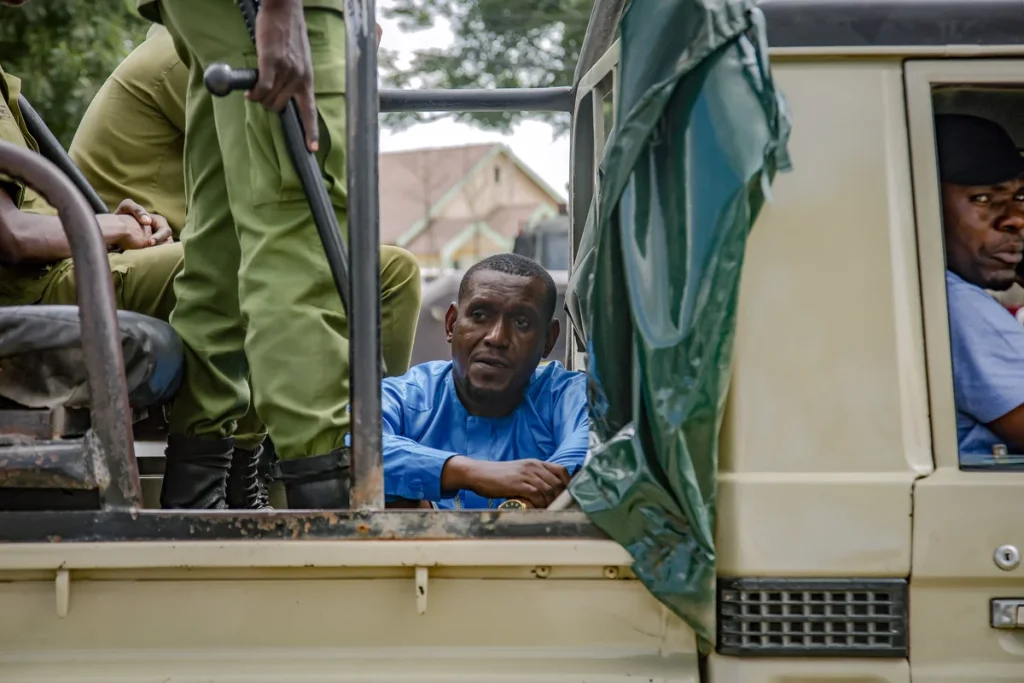Tanzania once celebrated as a bastion of peace and political stability in East Africa, is now gripped by an eerie wave of abductions and terror that mirrors the dark days of Pinochet’s Chile.
A wave of abductions, disappearances, and targeted killings of government critics has ignited fear and silence across the country, raising alarming questions about the state of democracy and civil rights in the nation.
It’s becoming increasingly clear that Tanzania is heading down a dark path of authoritarianism. Over the past few years, Tanzania has witnessed a dramatic escalation in targeted violence against individuals who have spoken out against the government.
Prominent opposition figures, activists, human rights lawyers, and even ordinary citizens who dare to criticize the state have been subjected to abductions, disappearances, and extrajudicial killings.
The increasing climate of repression and fear draws chilling comparisons to the methods employed during Pinochet’s dictatorship in Chile, where thousands of political opponents were ‘disappeared’ or killed to maintain the regime’s grip on power.
Recent High-Profile Cases of Abductions and Killings
The most recent case sending shockwaves through Tanzania was the abduction, torture, and heinous murder of Ali Mohamed Kibao, a senior leader of the opposition party CHADEMA.
READ RELATED: Unanswered Questions: Searching for Truth in Tanzania’s Mysterious Kidnappings
Kibao, known for his unequivocal and uncompromised stance on truth and accountability, was abducted by assailants (widely believed to be state operatives) and later found dead after what seemed to be prolonged moments of physical gruesome torture.
His murder has escalated fears among opposition members and the public in general, reinforcing the belief that state-sanctioned violence is being used to silence critics.
Kibao’s death has not only devastated his family and supporters but has also sent a clear message to opposition leaders and activists: dissent could cost them their lives. That, while they may have the freedom to speak, they do not have the same freedom after speaking.
Similarly, the recent arbitrary arrest of Jacob Boniface, former mayor of Kinondoni, has also sparked widespread public outrage as to the arbitrary and violent nature of these arrests. Boniphace, a key figure within CHADEMA, was detained without clear charges, further demonstrating the government’s tightening grip on opposition members. His arrest came just weeks after several other high-profile figures from CHADEMA were abducted and “disappeared”.
Chief among those arrested and whose whereabouts are still unknown to date, include CHADEMA’S Temeke District Youth Leader Mr. Deusdedith Soka, and several other key youth party leaders who were abducted and disappeared over a month now.
Parallels to Pinochet’s Chile
The comparison to Augusto Pinochet’s Chile has become increasingly common among Tanzanian activists and analysts. Under Pinochet’s rule from 1973 to 1990, Chile saw widespread human rights abuses, including the abduction, torture, and killing of thousands of political dissidents, human rights lawyers and activists.
Pinochet’s regime was infamous for its “disappeared” citizens, whose bodies were often never found, leaving families in anguish and despair.
In Tanzania, similar tactics appear to be at play. Families of the missing live in limbo, with no closure or justice in sight. The chilling effect on free speech is palpable as fear takes hold in a country once known for its relative openness.
“We are witnessing the reincarnation of Pinochet’s methods in Tanzania,” says Jonas Mziba, a history professor at the University of Dodoma. “The tactics of intimidation, suppression, and fear are all too familiar. Tanzania is at a critical juncture—if this continues, we risk losing the democratic gains made over the past decades.”
Government Denials and International Condemnation
The Tanzanian government has consistently denied involvement in these cases, claiming that law enforcement is investigating the disappearances and killings.
However, the lack of transparency and the failure to provide meaningful answers have led to widespread scepticism, both domestically and internationally.
The United Nations, through its various agencies, has called for immediate action to address these grave human rights violations.
In a joint statement, the OHCHR, UNESCO, and UN Human Rights Council have urged Tanzania to end the climate of fear, ensure the safety of opposition figures, and bring an end to state violence.
“The current trend of abductions, disappearances, and killings in Tanzania must end immediately. The government’s failure to act undermines human rights and the democratic process,” said Michelle Bachelet, UN High Commissioner for Human Rights.
Calls for justice and accountability
As the international community continues to apply pressure, activists and families of the victims demand justice and transparency.
They fear that without intervention, Tanzania will become another chapter in the global history of states that use abduction, murder, and repression to maintain power.
However, for Tanzania, the question remains: Will Pinochet’s spirit prevail, or will the nation reclaim its path toward democracy and justice?
As fear grows within the country, the families of the abducted, disappeared, and murdered continue to demand answers and justice.
Human rights groups and opposition leaders are urging the government and international bodies to take action to prevent further erosion of Tanzania’s democratic institutions.
For now, the streets of Tanzania are silent and fearful. But beneath that silence is a simmering anger and determination as citizens refuse to let their country fall into the grips of dictatorship without a fight.
The question remains: Will Tanzania’s leaders (or rather rulers) heed the calls for justice, or will they continue down the path of oppression, becoming another tragic chapter in the global history of state-sponsored terror?


What will be the solution to end this violence acts in this country?